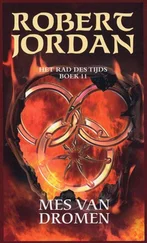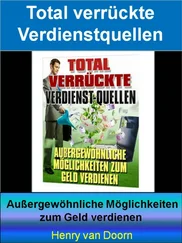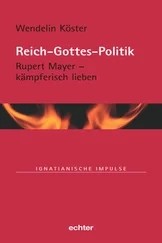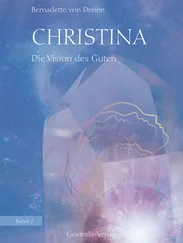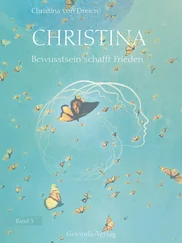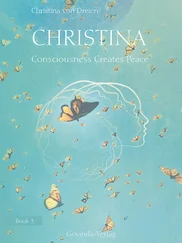The whole family had converged on the front porch, and I could hardly contain myself. A dog! A wonderful, happy, panty dog! I realize now that Champ was never much of a looker, but when you’re six, any dog—no matter how mangy—is a glorious, huggable creature.
He looked pretty good to my brothers, too, but from the way my mother’s face was pinched, I could tell she was thinking, Abandon this dog? Oh, I can see it. I can definitely see it. What she said, though, was simply, “There is no room for that animal in this house.”
“Trina,” my dad said, “it’s not a matter of ownership. It’s a matter of compassion.”
“You’re not springing it on me as a… a pet, then?”
“That is definitely not my intention.”
“Well, then what do you intend to do?”
“Give him a decent meal, a bath… then maybe we’ll place an ad and find him a home.”
She eyed him from across the threshold. “There’ll be no ‘maybe’ about it.”
My brothers said, “We don’t get to keep him?”
“That’s right.”
“But Mo-om,” they moaned.
“It’s not open to discussion,” she said. “He gets a bath, he gets a meal, he gets an ad in the paper.”
My father put one arm around Matt’s shoulder and the other around Mike’s. “Someday, boys, we’ll get a puppy.”
My mother was already heading back inside, but over her shoulder came, “Not until you learn to keep your room neat, boys!”
By the end of the week, the dog was named Champ. By the end of the next week, he’d made it from the backyard into the kitchen area. And not too long after that, he was all moved in. It seemed nobody wanted a full-grown dog with a happy bark. Nobody but four-fifths of the Baker family, anyway.
Then my mother started noticing an odor. A mysterious odor of indeterminate origin. We all admitted we smelled it, too, but where my mother was convinced it was Eau de Champ, we disagreed. She had us bathing him so often that it couldn’t possibly be him. We each sniffed him out pretty good and he smelled perfectly rosy.
My personal suspicion was that Matt and Mike were the ones not bathing enough, but I didn’t want to get close enough to sniff them. And since our camp was divided on just who the culprit or culprits were, the odor was dubbed the Mystery Smell. Whole dinnertime discussions revolved around the Mystery Smell, which my brothers found amusing and my mother did not.
Then one day my mother cracked the case. And she might have cracked Champ’s skull as well if my dad hadn’t come to the rescue and shooed him outside.
Mom was fuming. “I told you it was him. The Mystery Smell comes from the Mystery Pisser ! Did you see that? Did you see that? He just squirted on the end table!”
My father raced with a roll of paper towels to where Champ had been, and said, “Where? Where is it?”
All of three drops were dripping down the table leg. “There,” my mother said, pointing a shaky finger at the wetness. “There!”
Dad wiped it up, then checked the carpet and said, “It was barely a drop.”
“Exactly!” my mother said with her hands on her hips. “Which is why I’ve never been able to find anything. That dog stays outside from now on. Do you hear me? He is no longer allowed in this house!”
“How about the garage?” I asked. “Can he sleep in there?”
“And have him tag everything that’s out there? No!”
Mike and Matt were grinning at each other. “Mystery Pisser! That could be the name for our band!”
“Yeah! Cool!”
“Band?” my mother asked. “Wait a minute, what band?” But they were already flying down to their room, laughing about the possibilities for a logo.
My father and I spent the rest of the day sniffing out and destroying criminal evidence. My dad used a spray bottle of ammonia; I followed up with Lysol. We did try to recruit my brothers, but they wound up getting into a spray-bottle fight, which got them locked in their room, which, of course, was fine with them.
So Champ became an outside dog, and he might have been our only pet ever if it hadn’t been for my fifth-grade science fair.
Everyone around me had great project ideas, but I couldn’t seem to come up with one. Then our teacher, Mrs. Brubeck, took me aside and told me about a friend of hers who had chickens, and how she could get me a fertilized egg for my project.
“But I don’t know anything about hatching an egg,” I told her.
She smiled and put her arm around my shoulders. “You don’t have to be an immediate expert at everything, Juli. The idea here is to learn something new.”
“But what if it dies?”
“Then it dies. Document your work scientifically and you’ll still get an A, if that’s what you’re worried about.”
An A? Being responsible for the death of a baby chick—that’s what I was worried about. Suddenly there was real appeal in building a volcano or making my own neoprene or demonstrating the various scientific applications of gear ratios.
But the ball was in motion, and Mrs. Brubeck would have no more discussion about it. She pulled The Beginner’s Guide to Raising Chickens from her bookshelf and said, “Read the section on artificial incubation and set yourself up tonight. I’ll get you an egg tomorrow.”
“But… ”
“Don’t worry so much, Juli,” she said. “We do this every year, and it’s always one of the best projects at the fair.”
I said, “But…,” but she was gone. Off to put an end to some other student’s battle with indecision.
That night I was more worried than ever. I’d read the chapter on incubation at least four times and was still confused about where to start. I didn’t happen to have an old aquarium lying around! We didn’t happen to have an incubation thermometer! Would a deep-fry model work?
I was supposed to control humidity, too, or horrible things would happen to the chick. Too dry and the chick couldn’t peck out; too wet and it would die of mushy chick disease. Mushy chick disease?!
My mother, being the sensible person that she is, told me to tell Mrs. Brubeck that I simply wouldn’t be hatching a chick. “Have you considered growing beans?” she asked me.
My father, however, understood that you can’t refuse to do your teacher’s assignment, and he promised to help. “An incubator’s not difficult to build. We’ll make one after dinner.”
How my father knows exactly where things are in our garage is one of the wonders of the universe. How he knew about incubators, however, was revealed to me while he was drilling a one-inch hole in an old scrap of Plexiglas. “I raised a duck from an egg when I was in high school.” He grinned at me. “Science fair project.”
“A duck?”
“Yes, but the principle is the same for all poultry. Keep the temperature constant and the humidity right, turn the egg several times a day, and in a few weeks you’ll have yourself a little peeper.”
He handed me a lightbulb and an extension cord with a socket attached. “Fasten this through the hole in the Plexiglas. I’ll find some thermometers.”
“Some? We need more than one?”
“We have to make you a hygrometer.”
“A hy grom eter?” “To check the humidity inside the incubator. It’s just a thermometer with wet gauze around the bulb.”
I smiled. “No mushy chick disease?”
He smiled back. “Precisely.”
By the next afternoon I had not one, but six chicken eggs incubating at a cozy 102 degrees Fahrenheit. “They don’t all make it, Juli,” Mrs. Brubeck told me. “Hope for one. The record’s three. The grade’s in the documentation. Be a scientist. Good luck.” And with that, she was off.
Читать дальше

